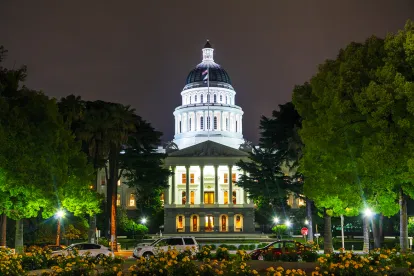Earlier this month, in Black Sky Capital v. Cobb, the California Supreme Court addressed the following question: when a creditor holds senior and junior liens on the same property, can the creditor non-judicially foreclose on the senior lien, and then seek a deficiency judgment against the borrower on the junior debt? For 25 years, California courts had answered that question “No” based on the First District Court of Appeal’s 1992 decision in Simon v. Superior Court, which held that the anti-deficiency protections of California Code of Civil Procedure 580d barred a creditor in such circumstances from pursuing a deficiency on the junior note. In 2017, however, the Fourth District Court of Appeal reached a different conclusion in Black Sky Capital v. Cobb, holding that section 580d only barred further recovery on that note following a non-judicial foreclosure sale, and did not bar recovery on a different (i.e. the junior) note. The conflict between the two Courts of Appeal has now been resolved.
The California Supreme Court has affirmed the Fourth District’s ruling, adopting the stricter reading of section 580d which holds that the statute only bars deficiency judgments on the same debt at issue in the senior foreclosure sale. While the Supreme Court recognized the concern raised in Simon that lenders will simply structure one loan as separate senior and junior loans in order to circumvent the borrower’s anti-deficiency protections, the court stated that such circumstances were not present in the case before it, as the loans at issue were made more than two years apart. The court did note that “a substantial question would arise” if “there is evidence of gamesmanship by the [creditor].” The court did not define “gamesmanship” but referenced two situations that might qualify: “intentional loan splitting” and “recovery in excess of what any junior lienholder would be able to recover.” The former situation clearly refers to a lender making two loans rather than one to avoid anti-deficiency protections, and the latter situation likely refers to the lender manipulating the senior foreclosure sale itself (e.g. bid rigging).
TAKEAWAYS
The good news for lenders is that Simon’s blanket rejection of their ability to recover on a junior lien after foreclosing on the senior lien is a thing of the past. As long as the two loans are truly separate and there have been no foreclosure sale shenanigans, lender should be able to pursue recovery on the junior note. The bad news is the Supreme Court gave little to no guidance on what constitutes “loan splitting.” The Simon case involved two loans signed four days apart with the liens recorded on the same day, and Black Sky Capital involved loans made two years apart. That leaves a large temporal grey area for lenders to worry about. When has enough time passed so that a second loan on the same property won’t be deemed loan splitting? What if the two loans were a year apart but the second loan was expressly contemplated at the time of the first? Was the delay “gamesmanship” or was there a valid business rationale for it? These questions will be answered in the courts in the coming years. In the meantime, lenders should carefully consider these circumstances when making or buying two loans secured by the same property.



 />i
/>i

